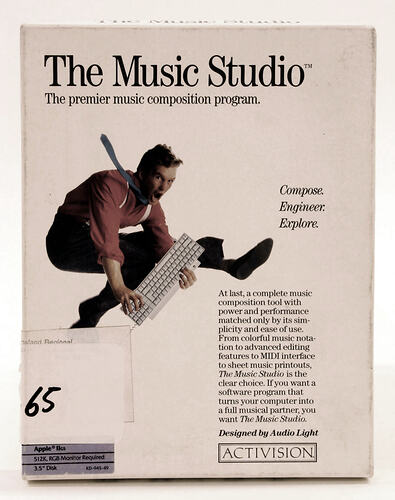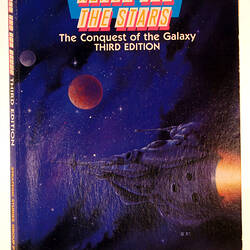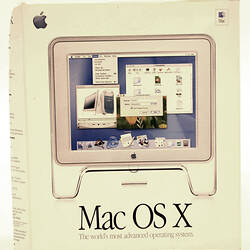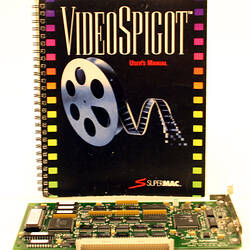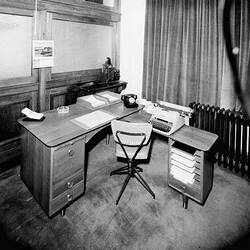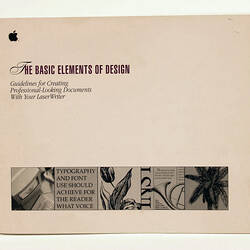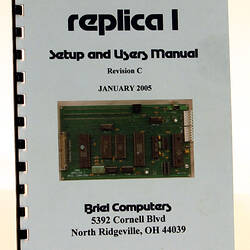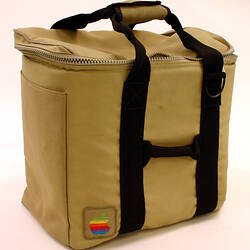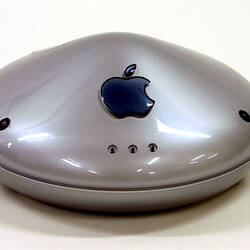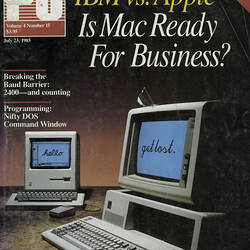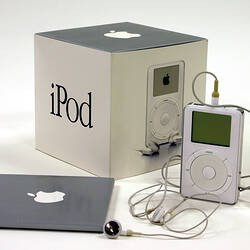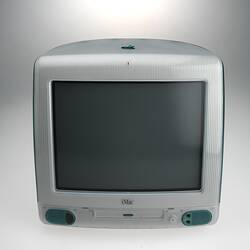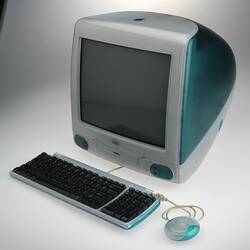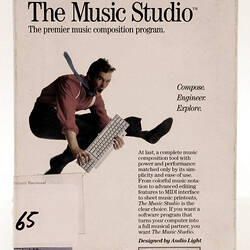Despite Apple's popularity as a platform for the creative industries, it had been slow to harness the developing CD burning technologies. Other platforms had, but principally for data backup purposes. Jobs, due to his connections to the movie industry and interest in music, observed how new compression technologies and peer-to-peer file sharing technologies were allowing music to be shared over the internet as MP3s.
He purchased a successful music software program, rebadged it as iTunes, and promoted personal CD making using the phrase, 'Rip - Mix - Burn'. This caused great ire amongst the recording industry which saw Jobs as encouraging illegal music copying, even of their own purchased recordings.
In October 2001, Apple introduced the iPod, a hard drive based MP3 player. Initially seen by many as overpriced and unnecessary, its elegant and simple industrial design allowed its users to easily download an entire music collection onto a small portable device. The following year, Apple introduced a Windows-compatible iPod, initially sold with MusicMatch instead of iTunes. iTunes for Windows was not introduced until October 2003. The iPod became the twenty-first century's version of Sony's best-selling Walkman.
Behind the scenes, Jobs was negotiating with the music industry to allow Apple's iTunes to morph into an online legal music download store. Apple's small market share suggested to the industry that a small-scale experiment could be undertaken. It was Jobs' belief that an easy-to-use, reliable and virus-free music download store could convince music lovers to part with their money rather than use free but illegal music sharing peer-to-peer software. Combined with the iPod, the new iTunes Music Store was an instant hit, and both now dominate their respective markets. They also continue Apple's legendary elegance of design, ease of use, and product innovation.
More Information
-
Keywords
-
Authors
-
Article types
